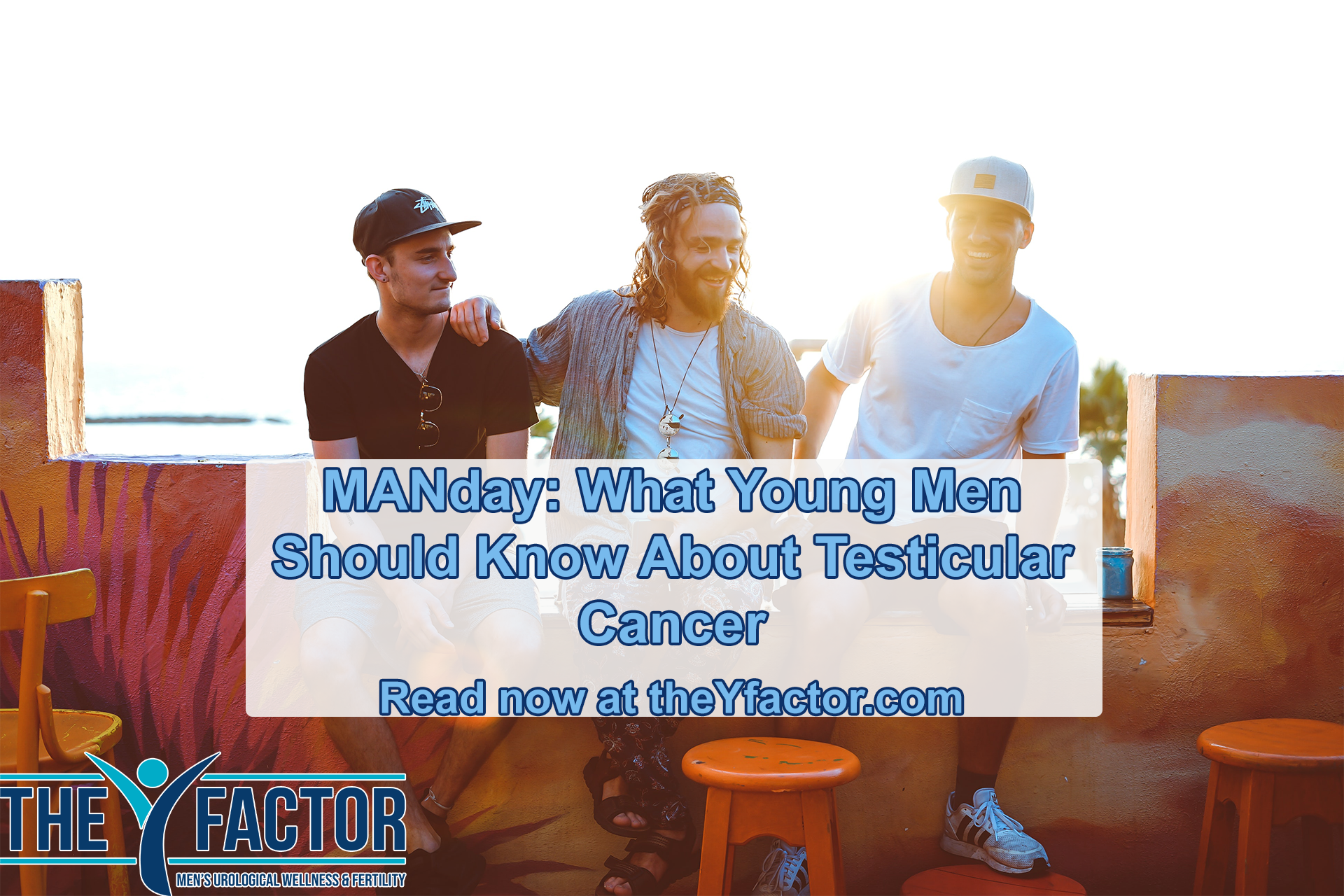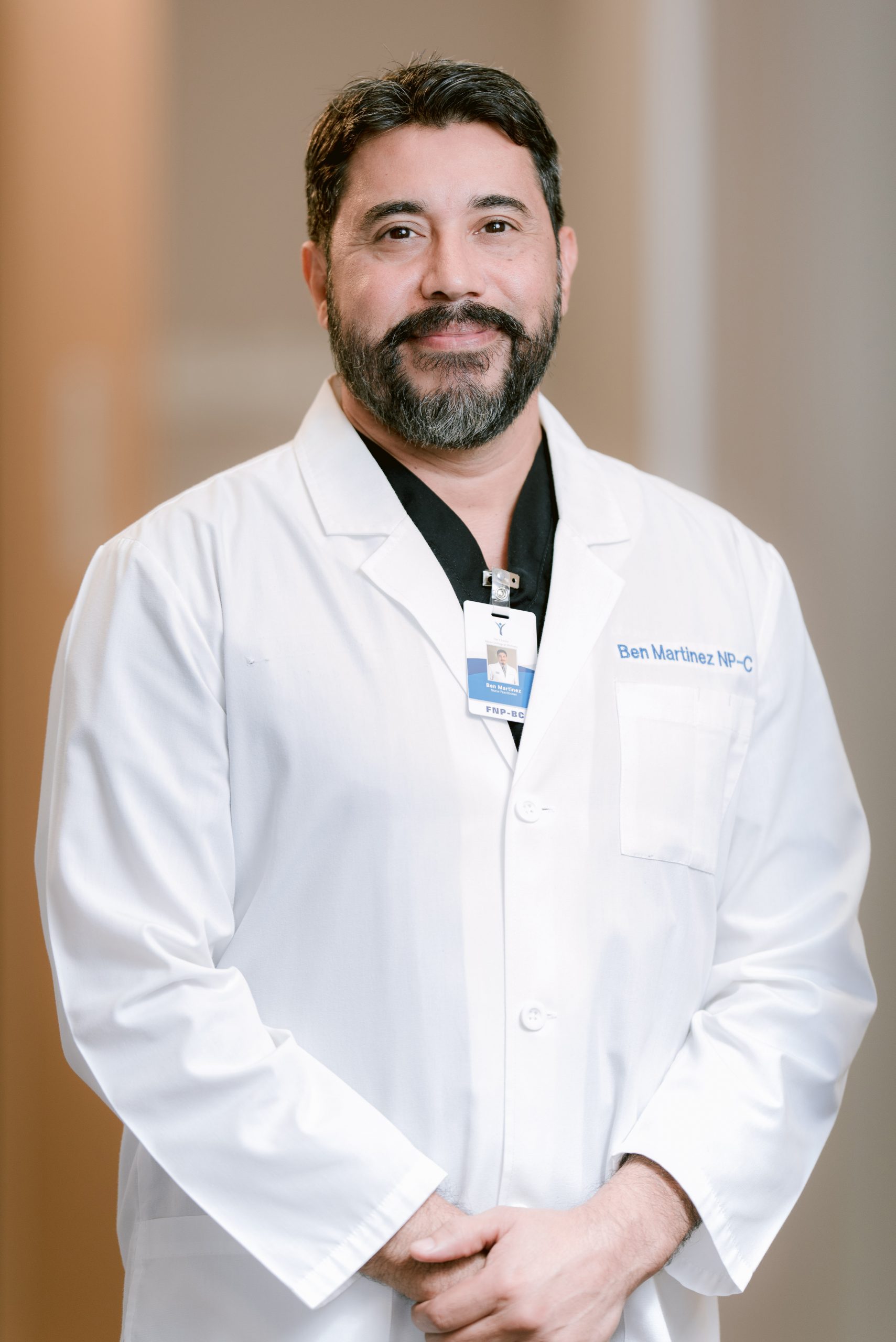MANday: What Young Men Should Know About Testicular Cancer
Testicular discomfort is one of the most common reasons why men visit a urologist. There are many reasons for testicular discomfort including injury, infection, testicular torsion, etc., but one of the most common concerns men have regarding testicular discomfort is the concern that it might be testicular cancer.
Testicular cancer is one of the most common malignancies in young adult men (20-34 years of age). It is highly curable when diagnosed early. Typical symptoms men report includes nonspecific testicular discomfort, a heavy feeling in the scrotum, or a feeling of a mass in the testicle. A common sign men present with is sudden testicular growth of one testicle. Any growth of the testis should be regarded as malignant until demonstrated otherwise and it should be managed accordingly.
Here at The Y Factor we obtain a thorough history in order to assist us in ruling in or ruling out testicular cancer. We also conduct a thorough physical examination which focuses on the genital area. A physical exam, even though sometimes feels awkward or uncomfortable, must always be performed when there is any physical complaint. If indicated, a scrotal ultrasound of the testis with color doppler is ordered and it is the preferred initial imaging modality and has high sensitivity for testicular malignancy. It can rule testicular cancer in as a possible diagnosis but we are aware that a negative ultrasound does not exclude the presence of cancer. If there is high suspicion for testicular cancer additional testing is ordered.
Initial treatment for testicular cancer is surgical removal of the malignant testicle. This is called an orchiectomy. Orchiectomy is essential in all stages of testicular cancer, and in most early-stage cancers it is curative. A biopsy is generally not advised in the evaluation of a testicular mass. The tunica albuginea is a natural barrier to local metastasis so it should not be compromised by direct diagnostic scrotal needle biopsy. Chemotherapy and radiation may be added to the treatment regimen if cancer has spread beyond the testicle.
Testicular cancer is different from many other cancers in that it is highly curable with primary therapy. Early diagnosis is vital, as identification at an earlier stage is associated with better long-term prognosis. Based on the natural history of the disease, curability after multimodality treatment regimens is often declared after 5 years. However, relapse has been reported 10 years after treatment. Post-treatment surveillance is always recommended in order to improve long-term outcomes by identifying potential curative reoccurrences even if a patient is asymptomatic.
So do not feel uneasy or hesitate to come in early if you are having any genital symptoms that may be concerning to you. Here at The Y Factor we focus on men’s health and have experience with issues such as these and many others. We are ready to listen to any concerns you may have and we will make sure to take care of you in order to get you back to the top of your game. “Women have OB-GYNs | Men have The Y Factor!”
References
- National Cancer Institute. Surveillance, Epidemiology, and End Results (SEER) Program. Cancer stat facts: testicular cancer. 2020 [internet publication].
- Ronnen EA, Kondagunta GV, Bacik J, et al. Incidence of late-relapse germ cell tumor and outcome to salvage chemotherapy. J Clin Oncol. 2005;23:6999-7004.
- Baird DC, Meyers GJ, Hu JS. Testicular Cancer: Diagnosis and Treatment. Am Fam Physician. 2018 Feb 15;97(4):261-268.
- Stephenson A, Eggener SE, Bass EB, et al. Diagnosis and treatment of early stage testicular cancer: AUA guideline. J Urol. 2019 Aug;202(2):272-81.
Benancio Martinez Jr is a certified Family Nurse Practitioner and one of the newest integral parts of the Y Factor team. Benancio is the medical provider in charge of the Northpointe location and brings to the Y Factor 10 years of nursing experience obtained through the emergency departments of the VA and Kingwood medical centers, as well as clinical experience in family practice, hematology, and oncology.
Want more information?
Ready to schedule you appointment? Just click on the call us button below to speak directly with our team.


